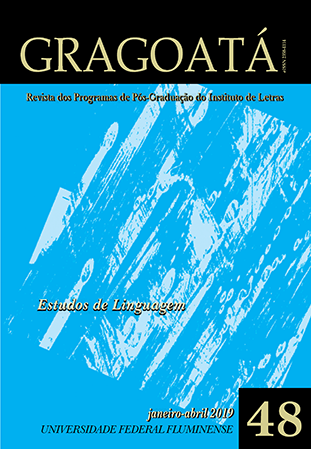A origem medieval da expressão 'língua materna': uma história contra a evidência de sentidos de um termo canônico na reflexão sobre a linguagem
DOI:
https://doi.org/10.22409/gragoata.v24i48.33619Palavras-chave:
Língua materna. Idade Média. Latim. Vernáculos.Resumo
Neste artigo, realizamos um estudo histórico da emergência da expressão “língua materna” no Ocidente, de forma a questionar as evidências formadas em torno desse termo canônico na reflexão sobre a linguagem. Demonstramos assim que a expressão língua materna é uma invenção medieval, empregada inicialmente em latim, nos textos da Igreja, como forma de contrapor essa língua aos vernáculos emergentes. Argumentando que essa expressão não se explica pura e simplesmente pela figura da mulher, mas corresponde primeiramente a certas configurações sociopolíticas na história, mostramos que os primeiros registros da expressão “língua materna” apontam problemas peculiares da sociedade medieval e as questões linguísticas implicadas.
Downloads
Downloads
Publicado
Edição
Seção
Licença
AUTORIZAÇÃO
Autores que publicam em Gragoatá concordam com os seguintes termos:
Os autores mantêm os direitos e cedem à revista o direito à primeira publicação, simultaneamente submetido a uma licença Creative Commons Atribuição 4.0 Internacional (CC BY 4.0), que permite o compartilhamento por terceiros com a devida menção ao autor e à primeira publicação pela Gragoatá.
Os autores podem entrar em acordos contratuais adicionais e separados para a distribuição não exclusiva da versão publicada da obra (por exemplo, postá-la em um repositório institucional ou publicá-la em um livro), com o reconhecimento de sua publicação inicial na Gragoatá.
A Gragoatá utiliza uma Licença Creative Commons - Atribuição CC BY 4.0 Internacional.











